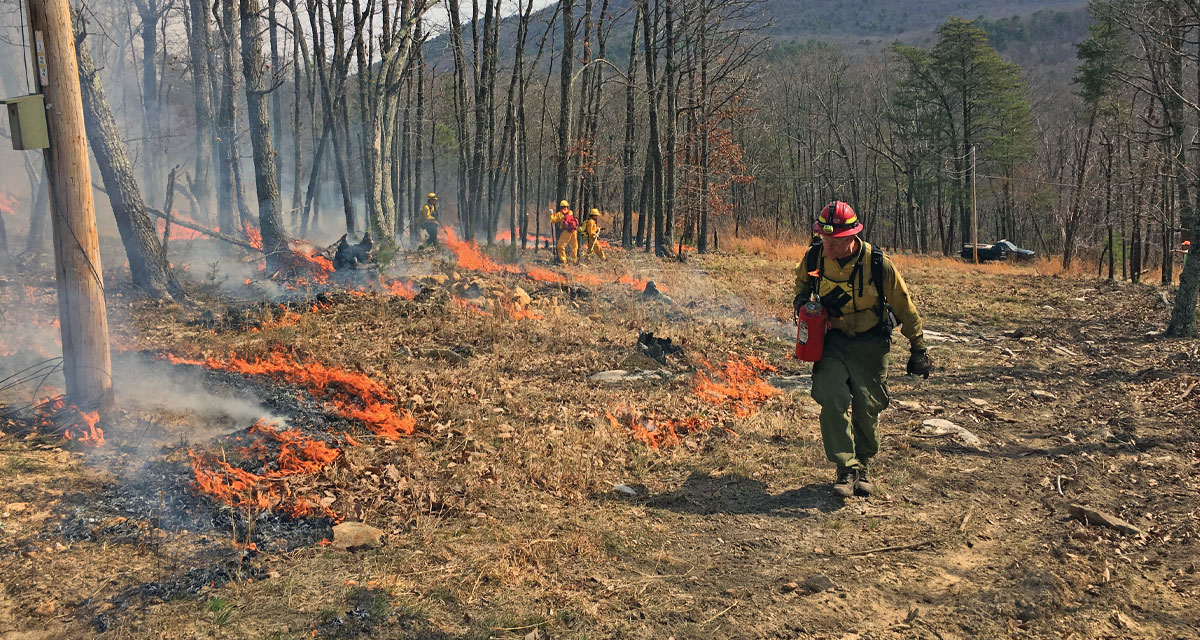The men and women of North Carolina’s Forest Service are unseen heroes, shepherds caring for our state woodland areas. While society is well aware of the rangers’ affiliation with the state and national parks, they also exist to help landowners ensure our current and future forests and woodland areas thrive in a healthy, productive environment. In this two-part series, homeowners will learn about inexpensive, yet vital, services, programs, and resources offered by North Carolina’s Forest Service.
N.C. Forest Service Mission
The unequivocal words, “We serve you,” extend to the protection, management, and promotion of forest resources for the citizens of North Carolina. Each day, and when they volunteer to serve on weekends, our forest rangers engage in any number of civic responsibilities.
- They prioritize first, and above all else, a wildfire response;
- Inspect logging operations by assessing all forestry-related or land-disturbing activities, protecting the waterways’ continued quality and flow;
- Utilize and train individuals in the “Pick-Up Fire Fighter Program,” which aids rangers during high fire-danger months;
- Collect native seeds annually for the state’s nursery and sell at a minimum cost to state residents, an effort to increase woodland areas;
- Educate children and teens in school systems and camps on the methods of forest ecosystem maintenance, identification of flora and fauna, forest management, the benefits of prescribed fire and wildfire control;
- And, as stated above, they prioritize wildfire response!
Other duties include:
House Calls
Stokes County Ranger Jonathan Young shares, “We serve landowners, whether you have acres of land or one tree; we will come to your property and offer free advice. One program is the Urban Forestry Management Plan.” Our community forests are the trees and plants connected to an ecosystem in small towns or large cities. If the goal is to grow or replant trees suitable to a specific location, whether it’s for a homeowner, landowner, group, or business, the Forest Service can assist in sourcing the seedings through the state’s nursery program, and contract help to plant.
Tree Diseases and Harmful Insects
While keeping a vigilant watch on the growth and development of trees by identifying invasive species and diseases, each county’s rangers also look for destructive pests. “There are a wide variety of insects and diseases that can harm your trees,” writes Stokes Assistant County Ranger Bobby Jefferson. “If you see any signs of dieback in the limbs or any other concerning symptoms, please, give us a call. We will be happy to diagnose your tree and provide you with treatment options. In addition, our staff has recently confirmed the presence of Emerald Ash Borer in our county, which kills ash trees if left untreated.”
Land Management Plan
Homeowners of at least one acre are eligible to request a Land Management Plan. Representatives from the Forest Service will walk the property, assessing tree vitality and pointing out invasive species for the nominal cost of five dollars an acre. The Plan appears similar to a “road map,” which describes the physical conditions of the land, outlines needed management recommendations, and delivers an intended legacy for future generations.
Other Plans include:
- Woodland Stewardship Plans, extended to landowners with10-acre tracts, who desire the opportunity to grow native trees and improve wildlife habitats.
- Under the forestry “Present-Use Valuation,” or PUV, program, owners of 20-acre plots or greater are offered the privilege of a tax deferment for written Woodland Management Plans. The Agricultural and Disaster Recovery program offers funding to offset the cost of plan preparation.
Prescribed Fire
The message of “Smokey Bear” has changed. While it’s essential to take notice of fire levels and not start intentional fires, fire is sometimes good. Without regular, low-intense “prescribed” wildfires, a crowded understory of piled leaf mold and dry fallen or standing timber would build up. “Believe it or not, fire is one of the most important tools we utilize in managing our forests,” writes Stokes Assistant County Ranger Bobby Jefferson. “Historically, fire has played a critical role in shaping our ecosystems in North Carolina. It helps reduce fuel loads, making our forest safer from wildfires, while benefiting wildlife and the diversity of our forests. We offer the service of prescribed burning to our private landowners to mitigate fuels and improve wildlife habitats.”
Next Month
Readers can gain further knowledge about the excellent programs, services, and resources offered by North Carolina’s Forest Service. Expect to learn about additional land management programs, tree planting assistance opportunities, and a means to purchase low-cost native trees through the N.C. Forest Service Nursery.



















